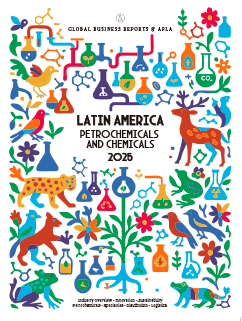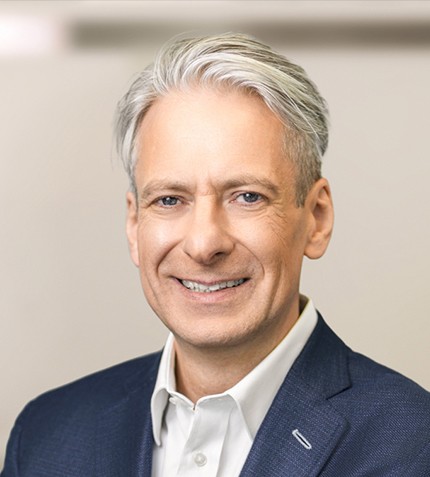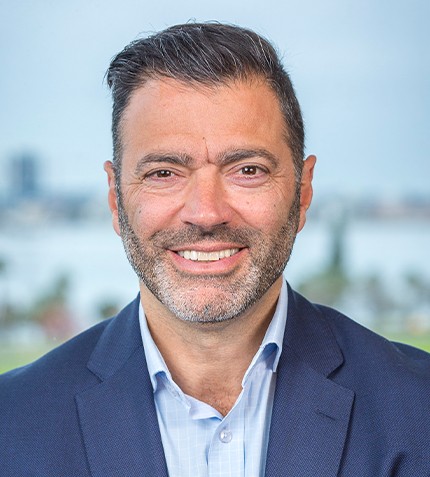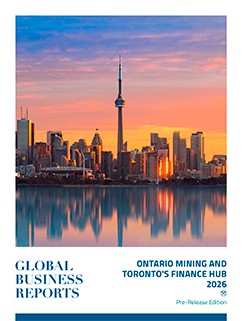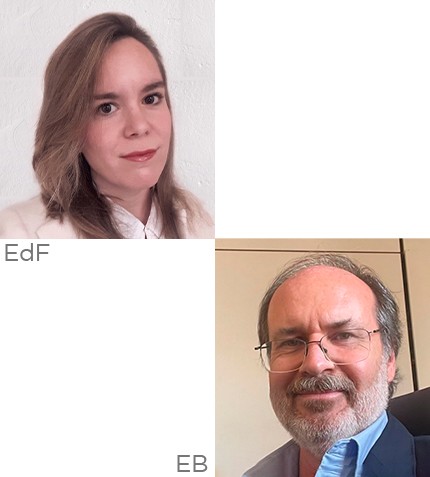
"In chemicals, easing import restrictions has shifted the market from large-scale storage to continuous inventory rotation, favoring Carboclor’s mid-scale tank flexibility."
RELATED PUBLICATION
Eugenia de Fazio and Ernesto Bastarrica
GENERAL MANAGER (EDF) AND PRESIDENT (EB), CARBOCLOR
What developments at Carboclor would you highlight from the past year?
EdF: Carboclor strengthened the positioning of its boutique logistics model in 2024, focusing on digital upgrades and refreshed communications. We have seen positive results: Growth came across petrochemical, agrochemical, and fuel clients. Operational priorities included leadership programs, SAP enhancements with AI-ready modules, and supply chain efficiencies. These efforts reinforced Carboclor’s position as a competitive, value-adding logistics partner in its core markets.
EB: Carboclor maintained its strategic objective of becoming a leading logistics provider. The company has invested in infrastructure to enhance service quality and prioritized process improvements to reduce client costs, notably halving truck waiting times and introducing a predictable loading schedule. Eugenia and our board have been instrumental in driving operational efficiency and strengthening the company’s competitive positioning.
How does Carboclor maximize the flexibility of its solutions for clients?
EdF: Carboclor manages 45,000 m³ of storage in tanks from 50 m³ up to nearly 2,000 m³, delivering tailored services such as nitrogen blanketing, heating, and specialized linings for fuels and chemicals. This boutique approach safeguards quality, transparency, and full traceability. In 2024, we reallocated an extra 4,500 m³ of existing capacity specifically to our fiscal/export tank program and we are now assessing LPG export opportunities to match our clients’ growth plans.
EB: Carboclor’s service model is also reinforced by highly specialized staff skilled in handling a wide variety of products, ensuring precise control of temperature, purging, and other technical requirements.
What are some key areas of growth?
EdF: In Argentina, we see strong demand from agroindustrial clients as the high season begins, alongside steady growth in chemicals and fuels. In chemicals, easing import restrictions has shifted the market from large-scale storage to continuous inventory rotation, favoring Carboclor’s mid-scale tank flexibility. Fuel exports to Paraguay are rising sharply, supported by the terminal’s natural draft and direct barge access via the Paraná de las Palmas, providing a competitive edge. The company is evaluating future investments to expand fuel-handling capacity in line with this growing regional trade.
EB: We have significant untapped port capacity and physical space to expand chemical and fuel storage, with active exploration of growth opportunities in Paraguay and Bolivia. Recent years have delivered positive financial results, supported by the efforts of Carboclor’s team and ANCAP, and management sees strong potential to further improve performance in the coming years.
Where has Carboclor been investing in its storage infrastructure?
EdF: Recent infrastructure investments at Carboclor have focused on expanding heated tank capacity, supported by a new boiler and upgraded steam distribution. Our office facilities were fully renovated into open-space layouts to enhance collaboration, alongside leadership and coaching initiatives. Electrical systems are being modernized, and revenues are being reinvested into terminal improvements. The pier has undergone a full redesign to safely accommodate both large vessels and the growing barge traffic linked to fuel exports to Paraguay.
EB: Our new steam system and boiler, and a major investment in optimizing our entire steam distribution network, will enable more efficient and environmentally responsible heating for all products requiring temperature control, enhancing operational robustness beyond simply installing new equipment.
How has Carboclor demonstrated resilience to headwinds in Argentina and around the globe?
EdF: We are operating within a complex global and regional macroeconomic context in 2025. The company is focused on cost management, operational efficiency, and excellence in logistics services, driving positive financial results and strengthening balance sheets. This stability enables thoughtful investment planning, such as the boiler upgrade, which five years ago might have seemed impossible but today is supported by Carboclor’s sustainable cash flow and growth strategy.
What are the company’s priorities for the coming years?
EB: Carboclor plans a major expansion in logistics capacity by using its existing infrastructure and space to grow service volume and business scale, while enhancing our boutique service through improved responsiveness, digitalization, and cost-optimizing procedures. For 2025, Carboclor aims to diversify its client base, reducing reliance on large-scale fuel volumes and focusing on chemical industry customers, leveraging its petrochemical expertise and industry involvement.
EdF: While current core operations include liquid tank storage, bulk, LPG storage, and dock management, Carboclor is exploring medium-term strategic diversification into dry goods warehousing and logistics distribution. This aims to offer clients integrated supply chain solutions, positioning Carboclor as a full-service logistics operator that manages the entire flow, from product receipt to delivery.




